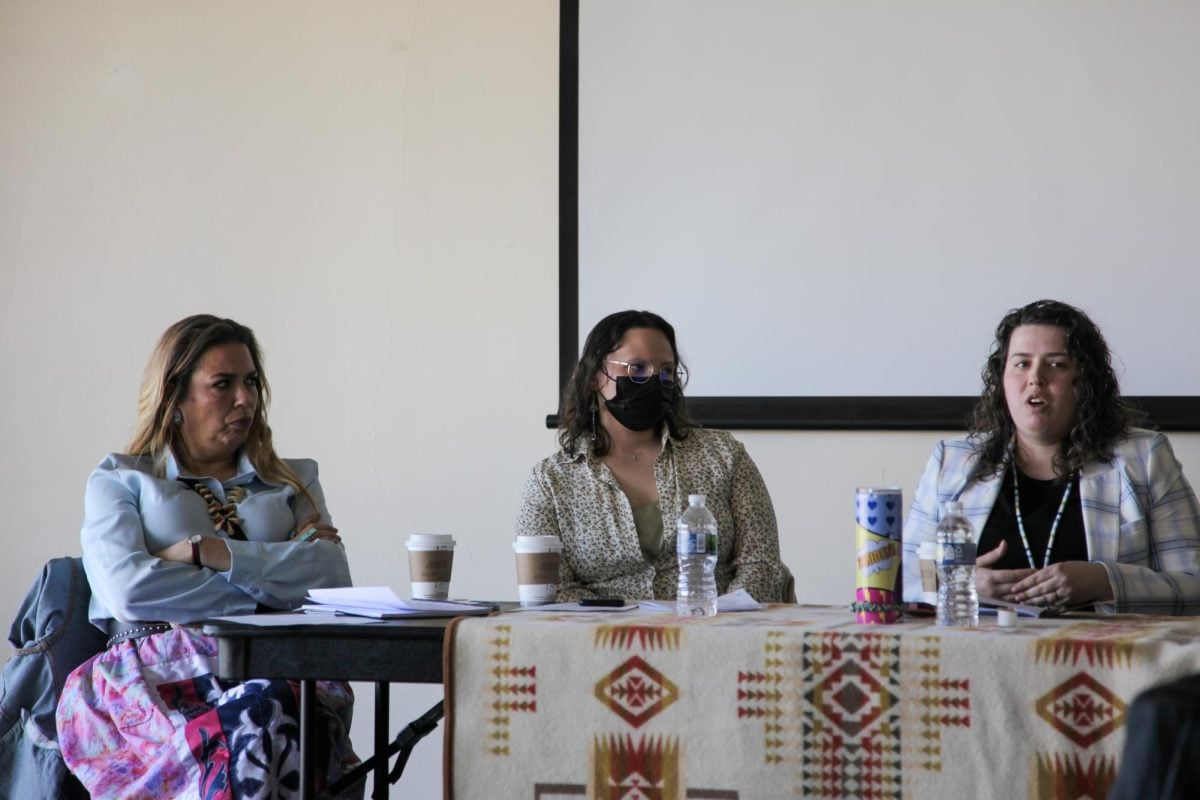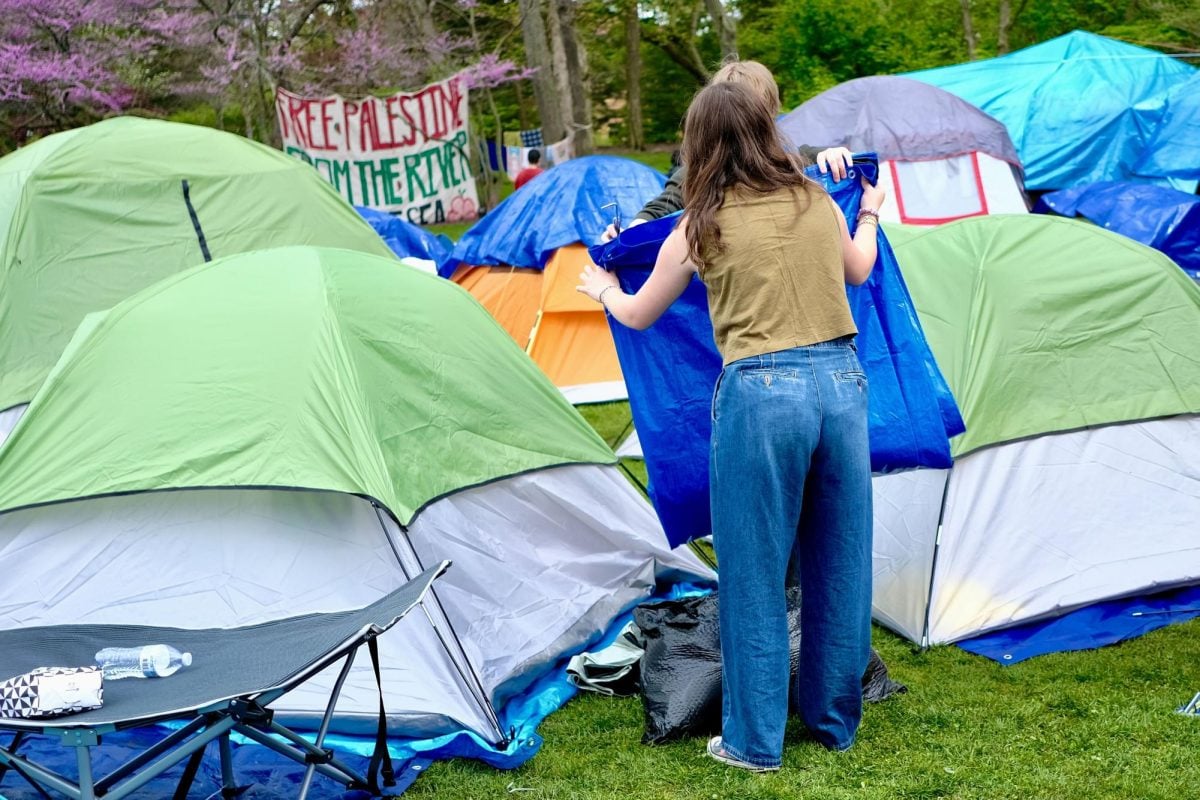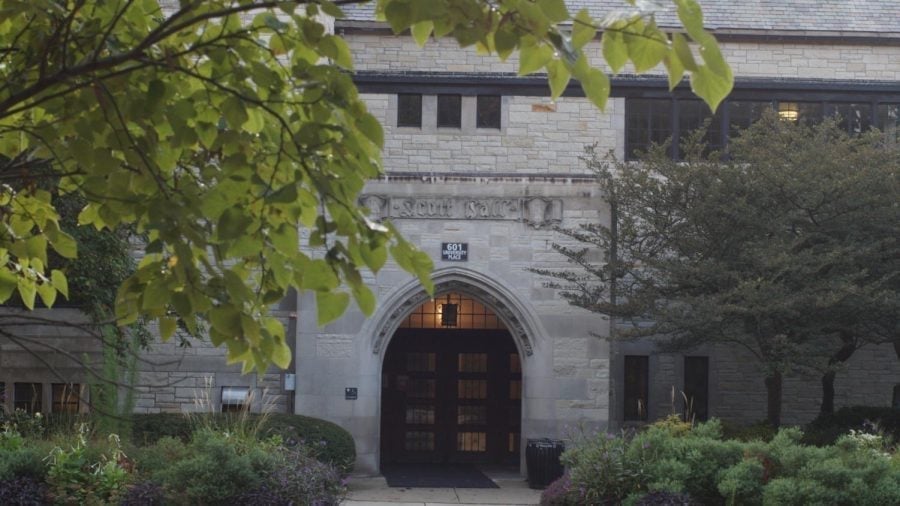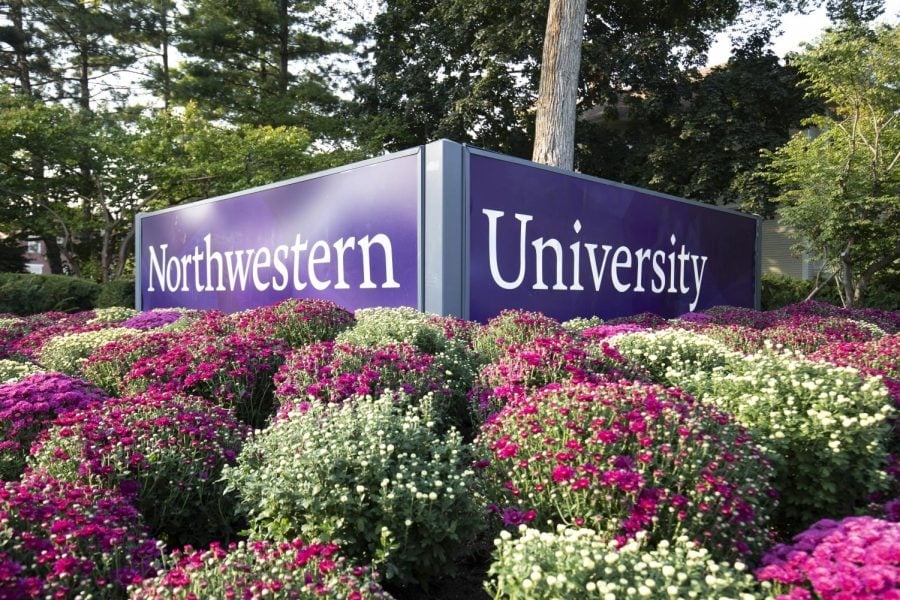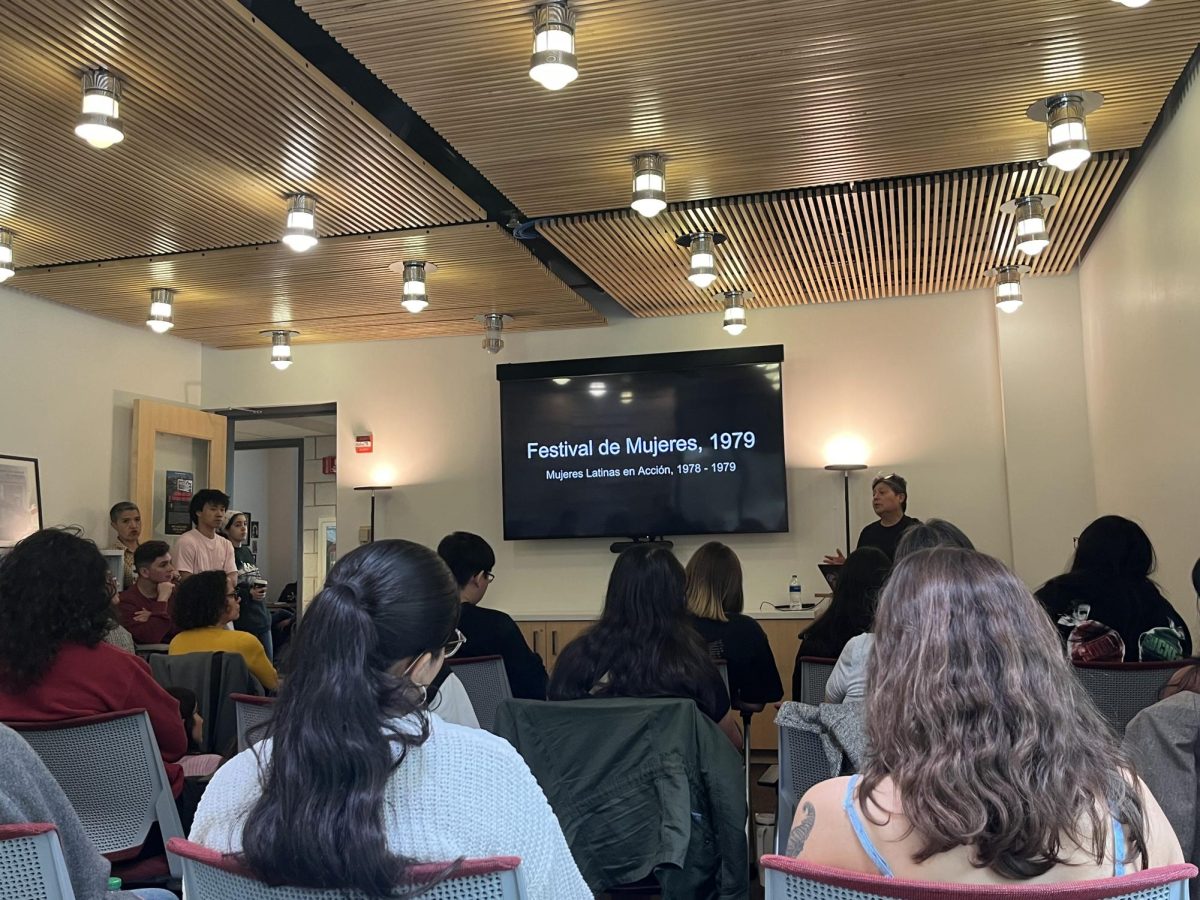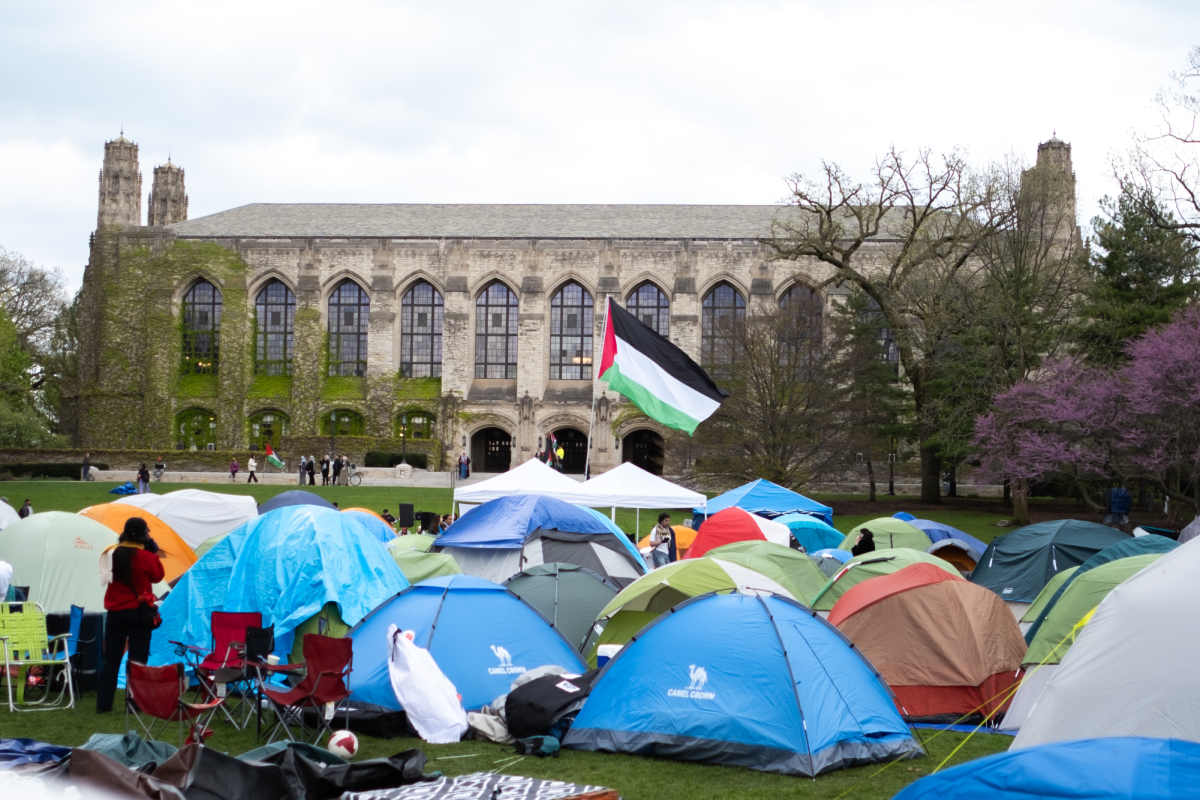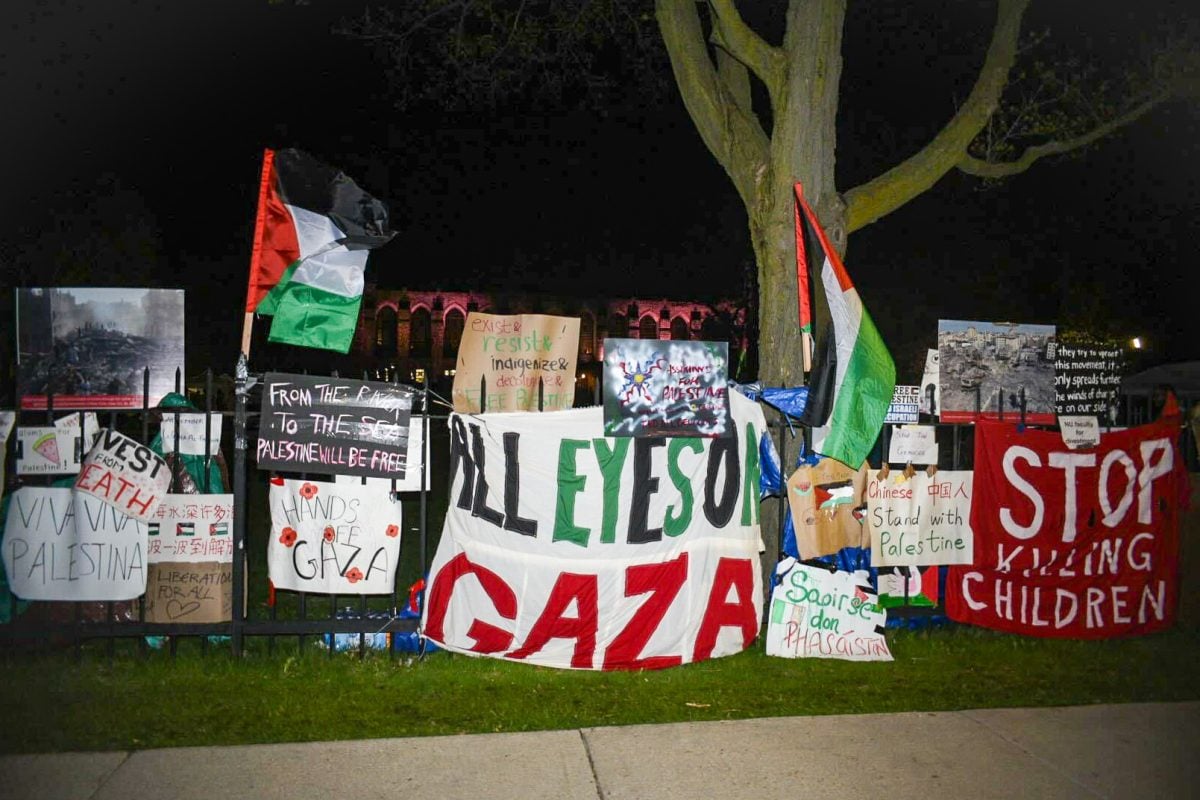The Center for Native American and Indigenous Research hosted the Potawatomi Confederacy Panel Discussion addressing topics on language, historic preservation and leadership in the Potawatomi Nation at Norris University Center on Saturday.
The program is part of a two-week event arranged by this year’s CNAIR Artist in Residence, Madalene Big Bear, a citizen of the Pokagon Band of Potawatomi Indians. She is also a Pokagon cultural keeper, with expertise in material culture, culinary traditions, art and storytelling.
Beginning the panel, Corinne Kasper, an enrolled citizen of the Pokagon Band of Potawatomi Indians, discussed her experience studying the Potawatomi language as a Ph.D. candidate in linguistics at the University of Chicago.
“As we all know, colonization and genocide occurred, which is bad for us all, and as a result, preservation of language is now a main goal of a lot of tribes across the Confederacy,” she said. “We can’t work in our own communities only … we have to look across communities.”
Kasper emphasized that she avoids describing Native American languages as “dying” or “endangered.” Her research focuses on a group of emerging Potawatomi language learners, which gives her hope for the language’s preservation, she said.
Lakota Hobia, a member of the Citizen Potawatomi Nation, discussed her work with historic preservation in the Potawatomi Nation. Hobia currently serves as the tribal historic preservation officer for the Match-E-Be-Nash-She-Wish Band of Potawatomi Indians, also known as Gun Lake Tribe.
Hobia said tribal and historic preservation comes in multiple forms, including archeological and landscape survey work of tribal lands, education resources and other community projects. Hobia echoed the need for collaboration between tribal nations in this project.
“Whether it’s on our tribal lands or within our larger international footprint, we have to be in communication with each other, we have to be accountable to each other, and we have to work together to get these things done,” Hobia said.
The panel also discussed environmental justice in tribal nations. Gina Roxas, a member of the Prairie Band Potawatomi Nation, is the executive director of Trickster Cultural Center, where she focuses on combining traditional plant knowledge with environmental protection.
Based in Chicago, Roxas emphasized the importance of bringing culturally relevant food in institutions and advocating for more grant funding for Native farmers.
The panel also featured Raphael Wahwassuck, who serves on the Tribal Council for the Prairie Band Potawatomi Nation. Working with federal and state governments to develop working relationships and treaties with tribal nations serve as the foundation of American law, Wahwassuck said.
“More and more of that (partnership) is being forgotten as we move through history. We can’t let them forget that,” Wahwassuck said. “That’s another reason why I’m hopeful that our Confederacy will come together strongly and support one another.”
CNAIR’s “Native-in-Residence” programming with Big Bear will continue through April 14 and feature several advanced quill-making workshops to create traditional round medallions.
SESP Prof. and CNAIR Director Megan Bang said events like Saturday’s are crucial to maintaining the responsibilities of the Native community at NU.
“Our job is to create a space like this to create partnerships and relationships that contribute to revitalizing of Indigenous communities,” Bang said. “For me, this is what we are doing to act on our responsibilities.”
Email: [email protected]
X: @Jerrwu
Related Stories:
— Native American and Indigenous community amplifies land acknowledgement dialogue
— NAISA celebrates Native American and Indigenous Heritage Month

